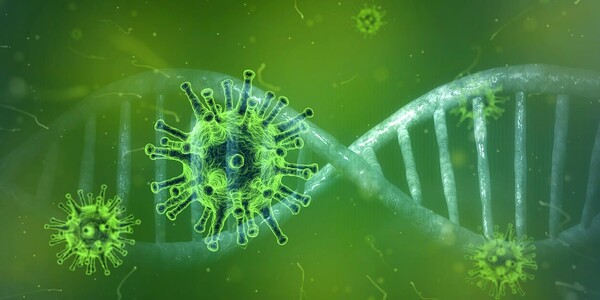
As concerns about a summer resurgence of COVID-19 grow, researchers have been studying the phenomenon of asymptomatic infections, where individuals show no symptoms despite being infected with the virus. Approximately 20% of those infected with COVID-19 fall into this category.
Recently, a study published in the international academic journal Nature shed light on a mutant gene that significantly increases the likelihood of asymptomatic COVID-19 cases. Led by Dr. Jill Hollenbach from the University of California, San Francisco (USCF), the research team analyzed data from about 30,000 participants, including bone marrow donors, over a 15-month study period. Out of these participants, 1428 were infected with COVID-19, and interestingly, 136 of them remained asymptomatic.
Upon analyzing the genes of the study participants, the research team discovered HLA gene mutations in those who were asymptomatic despite being infected. The HLA gene is responsible for presenting peptide fragments of potential invaders to the immune system, enabling T cells to respond to these invaders.
Participants with specific HLA mutation genes were found to be over twice as likely to remain asymptomatic even after contracting COVID-19. Notably, cases where the mutant gene was inherited from both parents and carried two copies had an eight times higher likelihood of being asymptomatic.
Further analysis of the HLA mutant gene in people who had not been exposed to COVID-19 revealed that the gene conferred a rapid response to the virus, even though they had no previous memory of the virus. The researchers hypothesized that this specific HLA variant made the spike protein fragment of the COVID-19 virus resemble the spike protein fragment of the general seasonal coronavirus, triggering a stronger antiviral response. Consequently, individuals with the HLA mutant gene, who had previously been exposed to common cold viruses, had immunity to COVID-19 and could quickly eliminate the virus before experiencing any symptoms.
Immunogeneticists anticipate that this discovery could pave the way for new treatments and vaccines for COVID-19. Dr. Mary Carrington, an immunogeneticist at Frederick's National Cancer Institute in Maryland, remarked that the finding provides crucial evidence that genetic variation contributes to the likelihood of asymptomatic infection. The hope is that the knowledge gained from studying immune responses will aid in the development of next-generation vaccines and more effective treatments for COVID-19.
However, it is important to note that even individuals with a genetic mutation that allows them to quickly clear the virus may still be capable of infecting others. Asymptomatic individuals might have a similar duration of infection as symptomatic patients and, due to the lack of symptoms, are less likely to self-isolate or take measures to prevent virus spread. A study published in the JAMA Network Open revealed that approximately 25% of infections can be spread by asymptomatic carriers, highlighting the need for continued vigilance and preventive measures.
